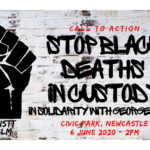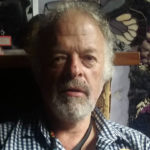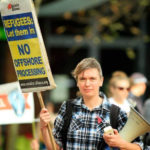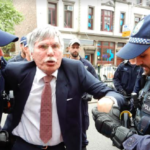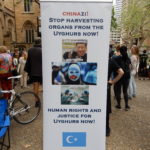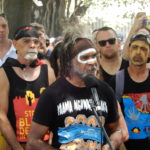Veteran Activists on How Protesting Really Does Lead to Change
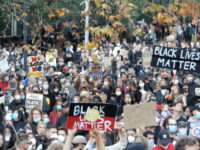
Anyone who was gathered at Sydney’s Belmore Park on 6 June for the Stop All Black Deaths in Custody rally will tell you that when tens of thousands knelt to mark the more than 430 First Nations custody deaths since 1991, it was a rare moment of deep solemnity.
And as the crowd dispersed, a remark was made by those who could remember that they hadn’t seen such numbers turn out to an Aboriginal deaths in custody protest since the 1980s. But, this time, the charge in the air spoke of substantial change approaching.
The spark that led so many to mobilise was a Minneapolis police officer killing African American man George Floyd, however the protest organisers – those behind the scenes and those over the loudspeakers – had been preparing for that moment for years.
So, despite the half in-half out COVID restrictions, a police commissioner pushing for the Supreme Court to shut down the rally, and an attack by his officers on a bunch of young people following the march, those gathered took away that change and now it’s growing.
Stand Up Fight Back
There’s a well-trodden argument that gets bandied around corridors of learning, along the lines of protesting not being worth it these days, as there’s not enough people turning up for it to be effective and it’s certainly not like the anti-Vietnam actions of the 60s.
However, if you get out there and speak to some of the more seasoned activists, they’ll tell you that mobilising does effect change, and it’s often those times when the turnout is thin on the ground that count, as it’s those moments when a movement’s fortitude is built.
Sydney Criminal Lawyers spoke to three veteran activists on the local protest circuit to find out what keeps them turning up on the street year after year with clenched fists raised, calling out it “always was and always will be Aboriginal land”.
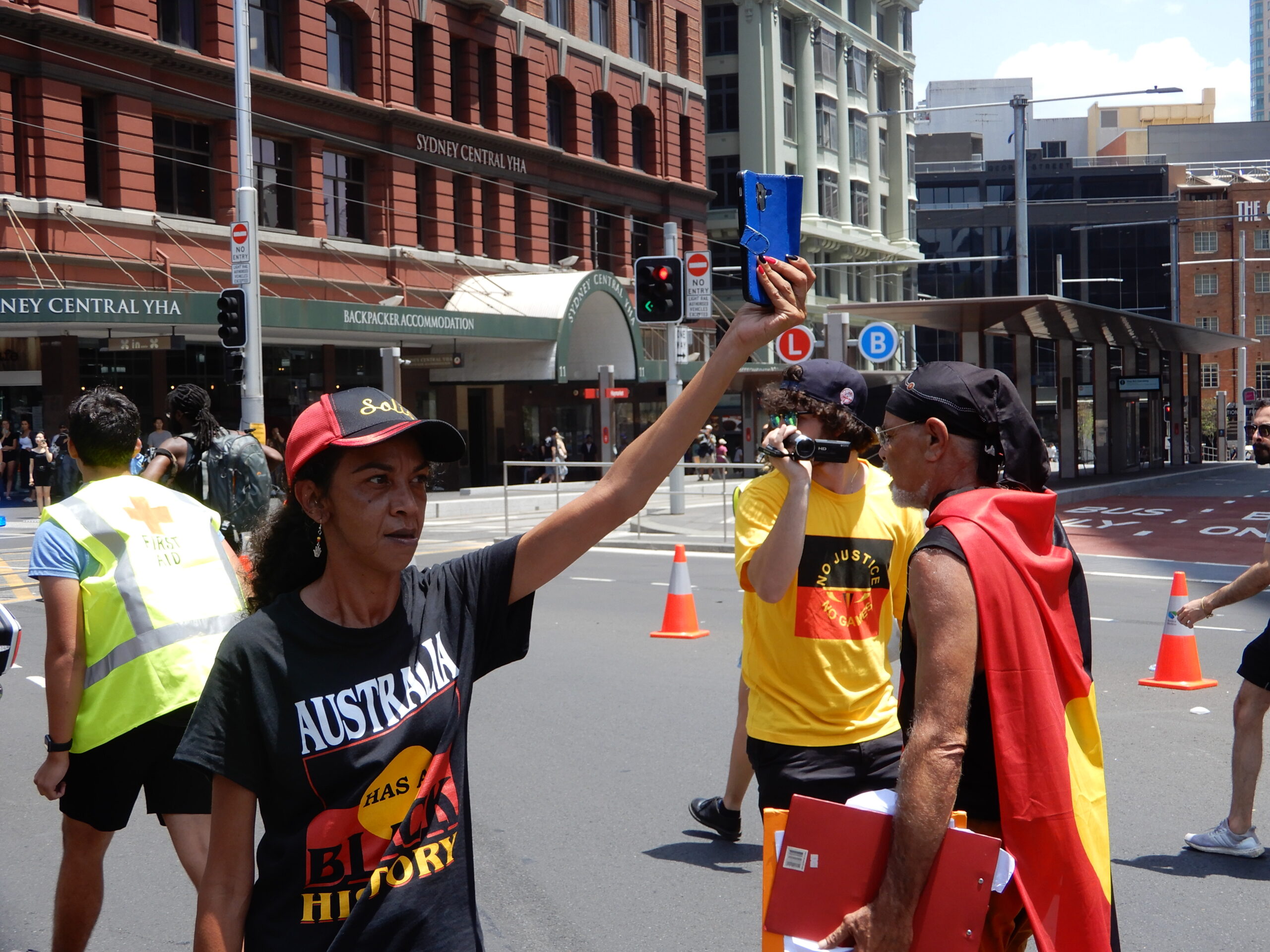
Since the recent Stop All Black Deaths in Custody protest in Sydney, your photo seems to have appeared in all the major papers.
Gwenda, you’ve been protesting for many years. Why would you say it’s worth it?
It’s worth demonstrating because in this country we still don’t have our sovereign rights.
We still don’t have land rights. We don’t have our human rights. We don’t have our birth rights in this country.
The last eight years have been full on. It was our mandate from the 2012 Aboriginal Tent Embassy 40th Anniversary to become a political portal to let this government know what’s happening with the grassroots issues in communities.
This includes sovereignty, deaths in custody, education, housing: all the social injustices that we, as Aboriginal people, are still facing in this country.
Another thing that came out of the Aboriginal Tent Embassy was to create our own black parliament. That is a black parliament by the people and for the people, not handpicked by the government. That came out of the 40th Anniversary.
As for being an activist, I grew up in Moree. These terms that people give us like radicals, troublemakers and activists in the media – really, I don’t see myself as anything other than a Gomeroi woman.
I’m sick of the injustices, like many other people in this country.
We’ve had complacency. We’ve been sold out through the Recognise campaign. We’ve been sold out through Reconciliation Australia. We’ve been sold out through native title. We’ve been sold out by our land councils. And enough is enough.
What we’ve been doing for the last eight years – highlighting the history of our struggles in Australia – it’s starting to see a change.
It’s a slow change, but we know that it’s happening.
Sydney’s Stop All Black Deaths in Custody protest was huge. Many said they hadn’t seen such a turnout on this matter for decades.
Do you expect change to come about as a result of it?
Big change is going to come from it. It starts with us. And it also starts with government. What this government has got to understand is that our sovereignty has never been ceded in this country.
To see the great numbers turn out, I think we woke Australia up. To see it actually grow – wow.
Unfortunately, our own media – Indigenous media and non-Indigenous media – is why people don’t know the truth about what’s happening here in Australia in regard to black deaths in custody, the genocide, the homelessness, the mental health issues and the incarceration of our people.
And as I mentioned in my speech at the rally, this is Australia, and they’ve been killing our people for 250 years.
The problem is the police. And the problem with the police is also the laws and legislation that protects them in this country.
Why is it important to keep up the struggle and get out on the streets to protest at the moment?
The street is the only platform we have. And if we’re out there taking up their space and being in their face, they’ve got no choice but to listen.
We’re drained and exhausted – yes, we are.
But, until we get our rights – our human rights and our birth rights – as sovereign people in this country, we will continue to keep our fire burning, and we will be marching on the streets.
This isn’t going away.
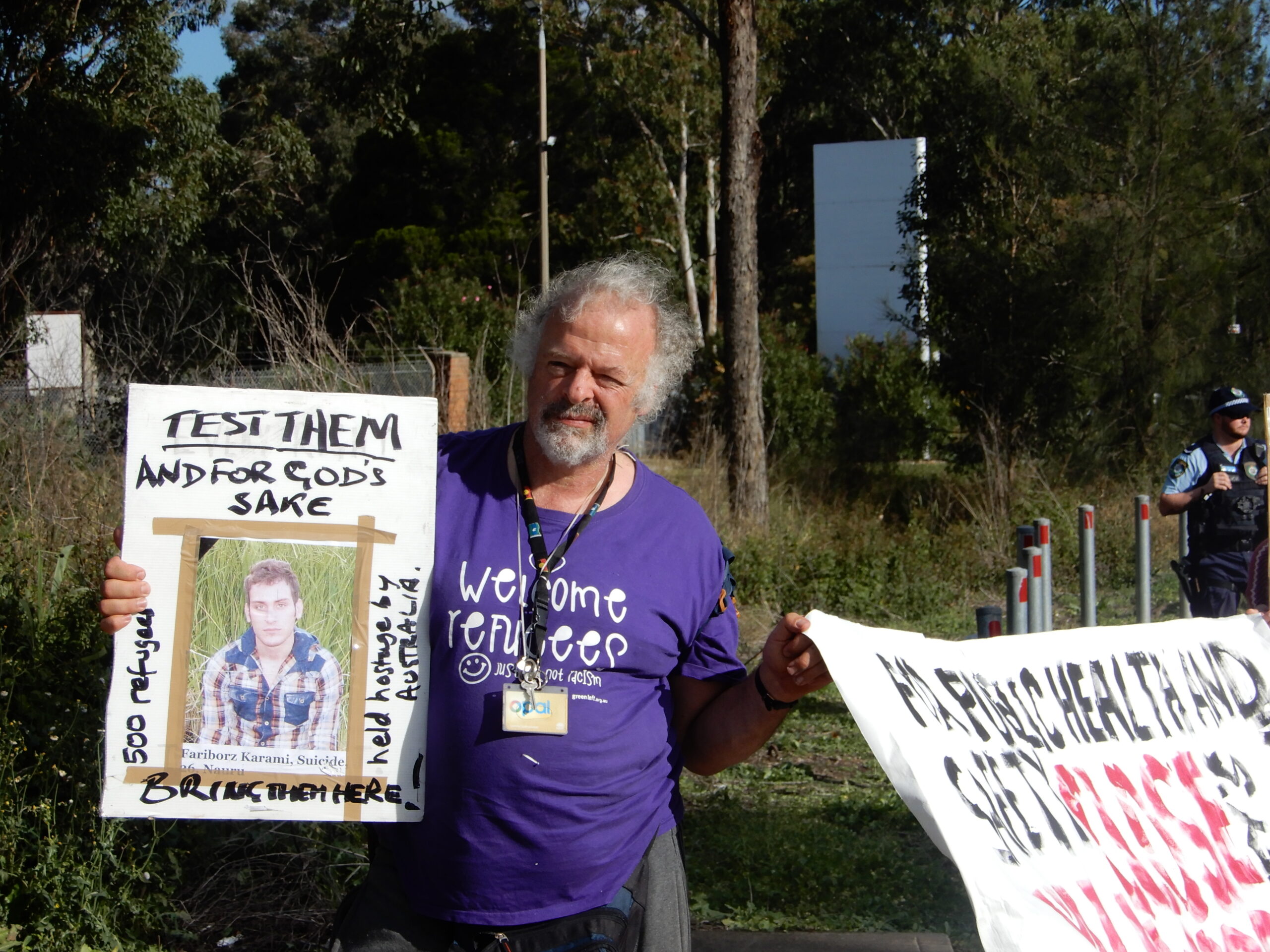
In 2015, you were awarded the Order of Timor for the campaigning you did on behalf of the East Timorese people, while their country was still occupied by Indonesia.
Stephen, that was in the 90s and you continue protesting to this day. In your opinion, why is it worth it?
In a nutshell, to resist is to win. The act of resistance is winning. It’s the winning of the human spirit. If you do nothing, then it feels like losing.
To resist is to win is East Timorese. It’s the name of Xanana Gusmao’s book.
It’s very important to be out on the street. That’s why it’s so tragic to me that the people in the nongovernment organisations are never to be seen on the street – never.
The people in Amnesty. The people in the Refugee Council of Australia. You find them in their offices, but they need to be out on the street, at least sometimes.
We are all part of the same movement, as we were on East Timor. We are all part of the same thing. We should be friends and in touch with each other. Not keeping in our separate silos.
If we really care. If we really understand activism, then we would be in touch with each other.
From your understanding, when have protests effected change?
From my point of view, demonstrations are partly to lift our own morale. They’re to have a feeling of togetherness, even if there are a small number – say around five people, as there were in the early days of East Timor.
And they’re to reach out to the public, who may know nothing of the cause you’re protesting about.
Timor certainly caused change.
A lot of people say they protested in 2003 and it didn’t stop the war with Iraq, so they’ve never done anything since then.
But, looking back, we don’t know how much worse it would have been without the protesting. We just don’t know, because you can’t rerun history.
The point is that it needs to be part of an escalation. It needs to be done for as long as it takes.
When you protest, you’re not going cap in hand to the government, you’re demanding it. You come out again and again and again. You will occupy buildings and you raise the stakes.
If we had half the gumption of those people who wrote “No War” on the side of the Opera House, we would have stopped it.
That courage, that gumption and that determination at the ground level would have stopped it.
These days, you’re involved in a weekly Free the Refugees protest that takes place at 4.30 pm on Friday afternoons at Sydney Town Hall.
It has continued throughout the COVID-19 pandemic. And it’s quite a modest action.
Why is it important to keep it up?
It’s important to keep it up because the public space is ours, it’s not to be taken away.
Rights can only be preserved by asserting them and struggling for them. That’s one thing I took from Peter McGregor, an anarchist activist.
We don’t have rights just because they’re written down somewhere. If we don’t assert them and struggle for them, they will be lost.
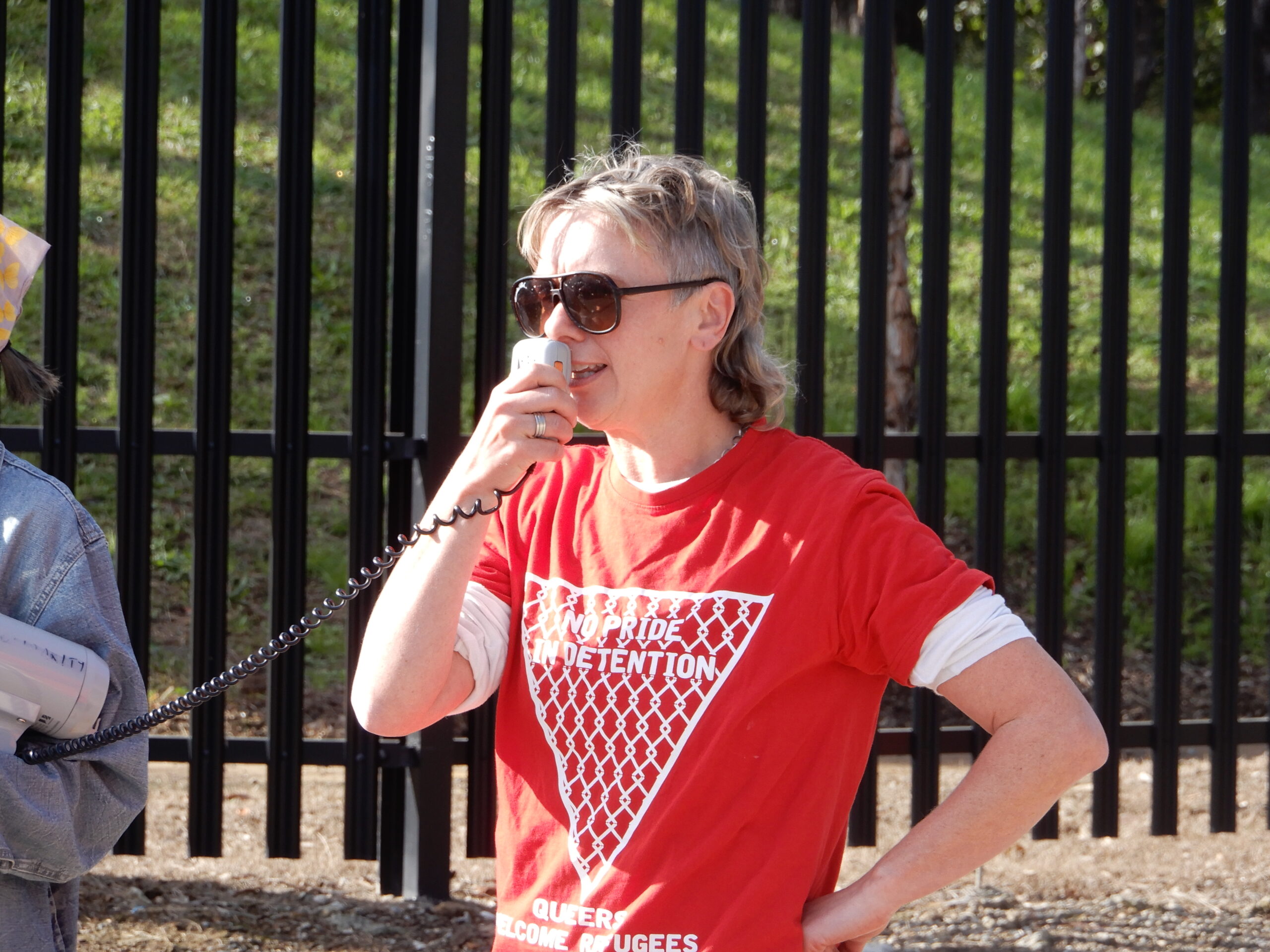
You started protesting the Gulf War in the early 1990s. And it’s not uncommon to see you at Sydney protests with a loudspeaker in hand.
Why would you say protesting is worthwhile?
It’s worth it because we win. And we show people how to make change.
When Rosa Parks sat down in the front of the bus, the key civil rights campaigner wasn’t thinking this is going to mean a massive upsurge. She was probably thinking hopefully this will get us from A to B.
When we first start out protesting, we think that it’s a bit insurmountable, but we are going to give it a go. And there’s a snowball effect, as people get more confident, you gather forces around you, and you work out who’s on the right side of the fence.
There’s a great poster which says, “Class Consciousness Is Realising Which Side of the Fence You Are On. And Class Struggle Is Realising Who Is There With You.”
So, through that process of organising and agitating, you gather allies and you then make change. You then win the campaign demands.
There’s everything in front of us to suggest that those campaigning activities, protesting and civil disobedience moments won’t make change, because the corporate elite have control of the media and the education system. The family unit can play a conservatising ideological role as well.
But, actually, once you start peeling back history, everything is about struggle and advancing a humanitarian-antipoverty-workers’ rights-environmental cause.
When has mobilising effected change?
The big campaign I was involved in was the Marriage Equality campaign, which took 13 to 14 years to win.
Those rallies started out about 400-strong back in 2004. Then, in 2017, we got up to 20,000 to 30,000 in Melbourne and Sydney.
It was a long process convincing people to rise up against inequality. But that shows that people power gets the goods.
There is also the Black Lives Matter example in the US. It shows that small important actions of five to ten or fifteen people against a death in custody in the lean times of a movement, can and does lead to mass mobilisations and the mass movements that are now winning the defunding of police.
So, we have to stick it out through the low ebbs of the movement.
Gramsci talks about the relationship between the base and the superstructure. The base is the economic base, while the superstructure is all of the institutions that the elite have at their disposal to propagate lies and mistruths about how to make change.
We have got to keep fighting against those institutions.
So, why’s it important to get out on the streets to protest right now?
At the moment, in Australia, there’s a real push from the Supreme Courts and the government for people not to protest because of the COVID health crisis.
But, actually, the government is opening up the economy: schools are back, and workers are back in still precarious positions in relation to the COVID crisis.
So, they’re trying to use this as an excuse to stop protesting. They’re proposing a whole range of horrors for workers and the poor.
And we are in a position, where we can win concessions and reforms from the government around deaths in custody.
So, it’s really important for people to come out and protest, when the grassroots movement leaders say move, because we have to challenge the government’s antidemocratic crackdown on our right to protest, and because there’s a real mood for change.
We have to show people how to make that change, because we all get confidence when we win.
The Victorian state government lifted the moratorium on fracking during the COVID lockdown.
It shows that we’re always waging these battles to win concessions, but the government and the elite will take them away in a time of crisis.
What we have to do and be prepared for is a long struggle, but, also, a struggle for power. Because those in power are actually the ones who are advancing the anti-environment, anti-worker, anti-First Nations policies and actions.
In the end, we have to have people power. We have to win the world. We have to win governments. And we have to build an empowered population, or else, they’re going to just take it from us.


